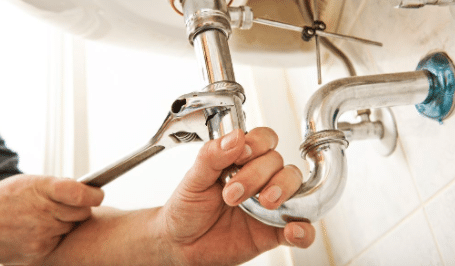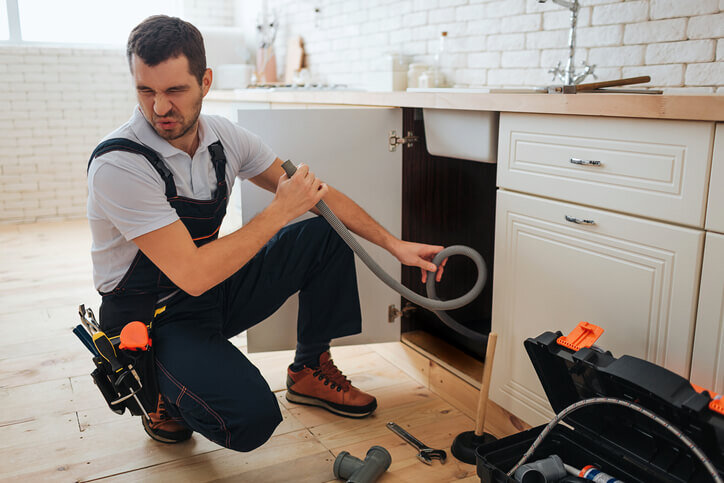Six Habits That Are Damaging The Home Appliances
Visit Site
What're your insights and beliefs on Leak Detection and Repair Without Destroying Your Home?

The trick to long-term home appliances, unsurprisingly, appertains upkeep. There's no hard and fast policy that can assure your plumbing home appliances a long wear, but you can prevent unneeded damages as well as repair work by avoiding negative plumbing routines.
You ought to quit doing these 6 things else you'll keep calling your plumber over for minor faults.
Purging everything
Yes, your commode drain brings about the drains, but that doesn't mean you need to unload simply anything away. Lots of 'flushable' materials are actually fantastic clog beginners, for instance dental floss. Asides keeping noticeable non-flushable products like cords and also plastics out of your toilet, you should also avoid flushing cotton buds, menstrual products, wipes, daipers and condoms down the toilet drain.
Putting oil in the sink
We understand effectively taking care of oil after a hearty meal is a discomfort. However just pouring it down the tubes can do long-term harm to your pipelines. "The fat and also grease can clog your drainpipe terribly sufficient to force you to call a plumber," clarifies Dawson. "Plumbing functions best when it's well cared for-- not abused with oil."
Utilizing too much drainpipe cleaner
Utilizing a drainpipe cleaner more than once or twice a month is an indication that something major is taking place within your pipes. Currently, instead of dealing with the main issue, you opt for a quick fix; a fizzy drain cleaner. Rightfully, a drainpipe cleaner will care for the blockage, but at what expense?
The chemicals in a drainpipe cleanser can speed up the rust of your pipelines. Add that to whatever underlying trouble is causing the blockage and also you may have to a severe trouble on your hands.
If you experience too many clogs, call your emergency plumber rather than utilizing a drainpipe cleaner.
Not washing meals prior to packing them into the dishwashing machine
it's called a dish washer, yet throwing in meals, pots, as well as pans covered in large food bits can really create some significant damages to the device, leading to long-term troubles down the line. "Property owners may need to obtain their dishwashing machine fixed more often if they do not wash their meals prior to loading, or a minimum of get rid of bigger food items," describes Audrey Monell, owner of Forrest Anderson Plumbing as well as Air Conditioner in Glendale, Arizona. "Food that obtains stuck on recipes creates the dishwasher to function harder, which can wear down components faster, leading to issues."
DIYing everything
With plumbing, a stitch in time actually does save nine. You can prevent a fullblown plumbing emergency by calling your plumber at the right time.
You might have learnt a few plumbing hacks from your father, yet you ought to understand where to draw a line and also call a professional. For instance, you might have the ability to deal with a clog yourself, but you shouldn't attempt to transform a pipe. You might mismatch pipelines or overtighten a bolt, triggering more injury and damages than you thought. Calling a plumber is a secure as well as affordable decision.
Not changing your dishwasher hoses
One very easy method to guarantee that you utilize your dishwashing machine for years is to change the hose pipe at the very least when in 5 years. This likewise makes an application for washing maker hoses.
In time, food fragments, soap and oil can create clogs within your pipelines. Changing them on time will stop any presure build up that can harm the internal functions of your dish washer or washing device.
A strengthened steel entwined tube does a terrific task of lengthening your maker's usage time.
No wintertime preventative measures
Extreme weather are bad for your pipes, particularly if they're made of steel. You need to protect your exposed pipes, and also your water tank, even if you have a hot water heater. You ought to additionally turn off your garden tube valve as well as any other outside water networks. These channels are outlets for cold; you pipelines can start to ice up from outside if you do not.
How Hard Water Damages Your Plumbing and Appliances
Hard water is no stranger to most households across America. This silent invader affects 85% of homes in the United States every day, wreaking havoc on pipes, plumbing fixtures, and water-using appliances.
Should you become a victim of hard water, you must understand exactly what it is and how it affects your plumbing and appliances. This will help you determine the correct measures to put in place to fix or prevent any problems that may arise.
First off, what exactly is “hard” water?
In short, “hard water” is used to describe water that contains relatively high amounts of dissolved minerals, primarily calcium and magnesium, and a host of trace metals. When rainwater falls from the sky (usually in a pure form), it absorbs the hardness minerals from rocks and soil, which changes it from soft to hard water.
What about my plumbing and appliances?
Mineral deposits from hard water can cause buildup on tubs, shower, sinks, faucets. But that’s only a small scratch of the surface. Those minerals can gradually build up inside pipes, fixtures, water heaters, washing machines, and dishwashers. Once they accumulate in those areas, they can clog pipes and create major problems throughout your plumbing system, from reduced water flow to increased pressure on pipes and fixtures.
This limescale buildup might affect some appliances, causing them to operate less efficiently and wear down faster. And the result? Higher energy bills, more (costly) plumbing replacements and repairs, and damaged appliances.
Keep in mind that certain types of plumbing are more susceptible to clogging than others. Copper, PVC, and PEX pipes are more resistant to hard water buildup and corrosion, but they can still get clogged or completely blocked by scale deposits.
How do I know if my water is hard?
White limescale buildup on plumbing fixtures (or any of the other signs mentioned above) is usually a good sign that your water is hard. If you suspect that you have hard water, you can simply shake up a small amount of dish soap and water in a closed container. If the mixture doesn’t create a lot of suds, you probably have hard water.
The most precise method, however, is to test your water with a DIY test kit (sold online or at local home centers or hardware stores) or send a water sample from your tap to a local lab to be tested. Be sure that you understand the nature of the test, the water condition being measured, and the significance of the test results.
Another way to obtain an estimate of water hardness is to check your annual water quality report to see if your water provider has reported any instance(s) of water hardness in your water supply.
https://www.springwellwater.com/how-hard-water-damages-your-plumbing-and-appliances/

As a passionate reader on Leak Detection and Repair Without Destroying Your Home, I think sharing that piece of content was a great idea. Feel free to take a moment to distribute this blog post if you liked it. I praise you for your time. Come back soon.
Click Here